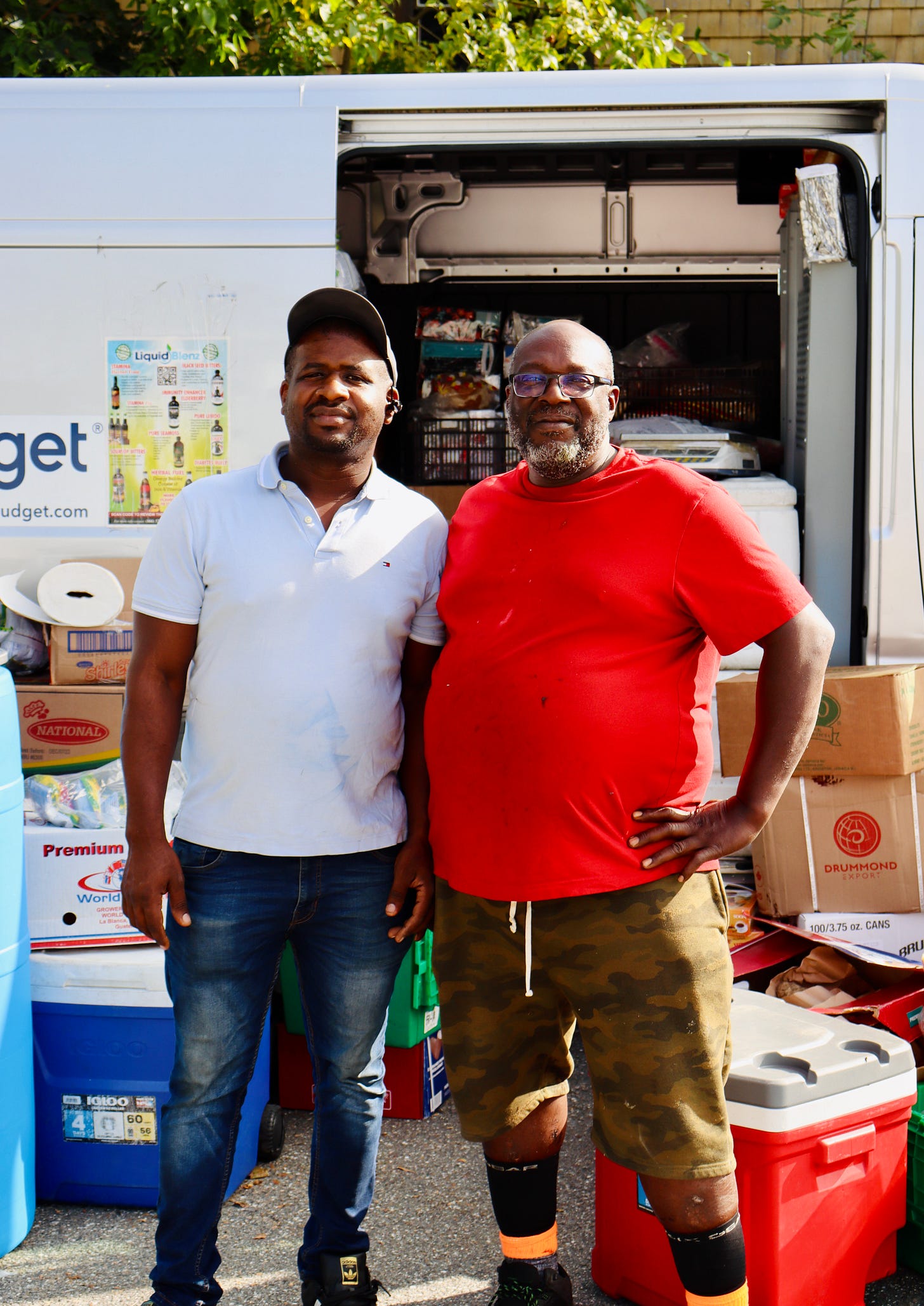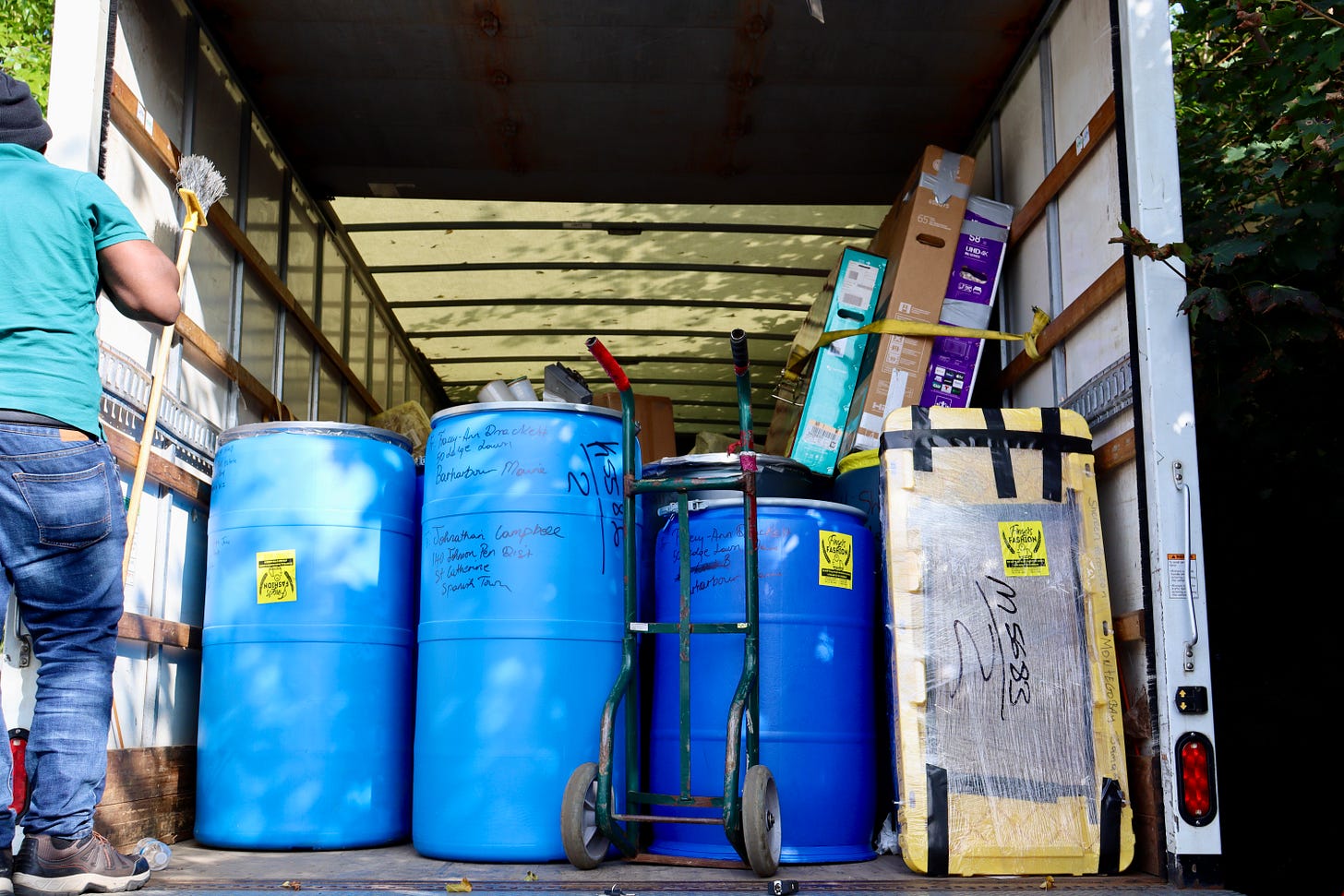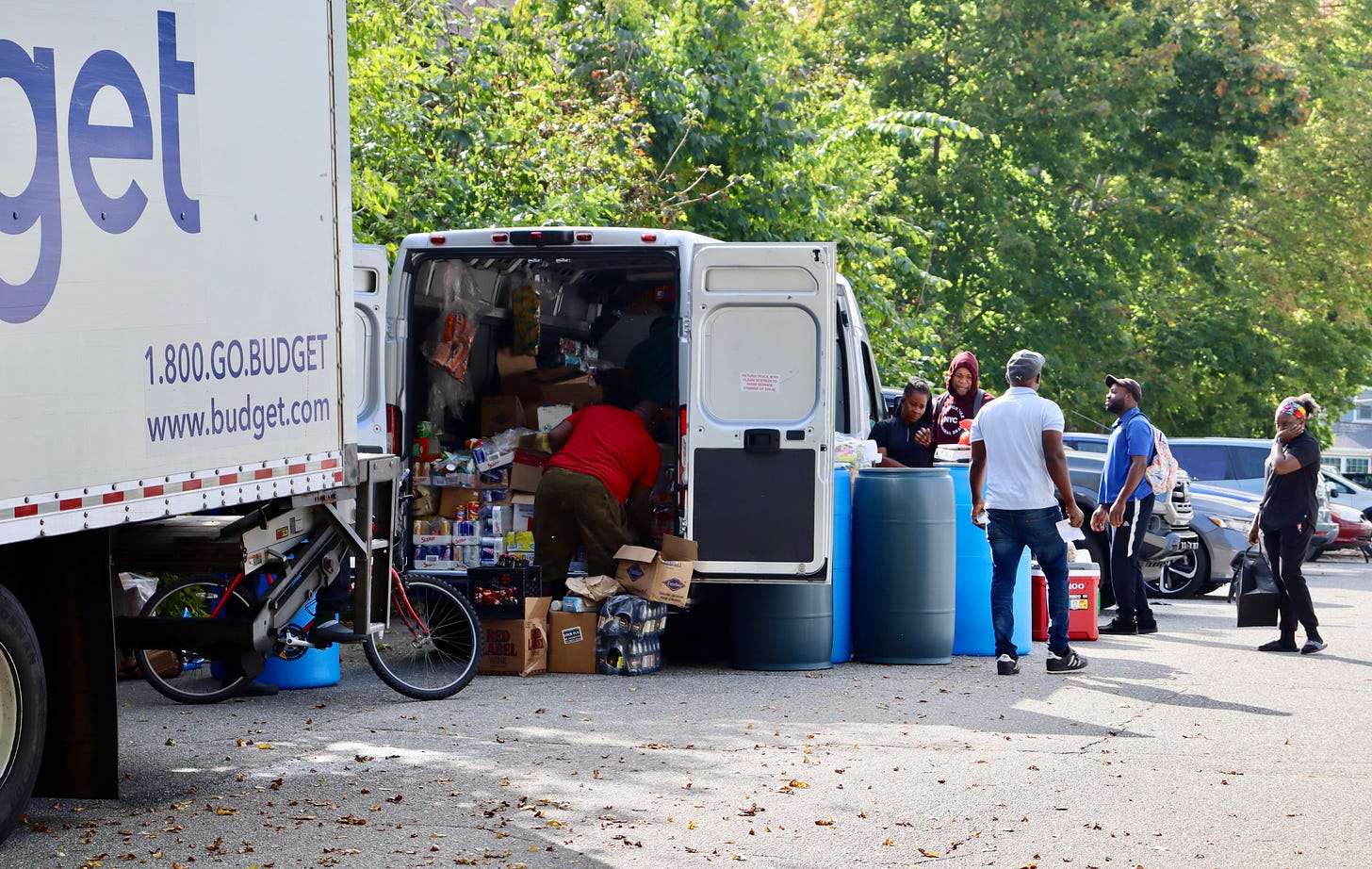How Blue Barrels Bring U.S. Goods Back Home
Finger Barrett's business connects U.S. seasonal workers to their Caribbean households
BAR HARBOR––Sometimes Orlando “Finger” Barrett might be catching some Zs in the front seat of a large white van in a parking lot between School Street and Ledgelawn Ave. That laid back moment, however, is the sign of a man that’s constantly on the go as he runs a business that unites multiple countries and spreads a taste of home to seasonal Bar Harbor employees during the summer months.
Finger operates a blue barrel shipping company that ships to Jamaica and the rest of the Caribbean. He drives a lot and hustles a lot and works even more.
UPS, FedEx, DHL: just about everyone has heard of these shipping companies, but not many have probably heard of Finger Fashion.
Finger’s large box trucks are usually accompanied by a van and sit in the parking lot of the previously named Ledgelawn Apartments. During the height of the summer, Finger holds impromptu pick-up sessions in that parking lot about once a week. During the shoulder seasons and winter months, that happens maybe once a month. What is Finger picking up? Blue barrels. More preciously, blue, polyethylene 55-gallon drums.
It is not uncommon to find Finger sleeping in the van’s front seat while his right-hand man, Andre Frater, and another helper assist customers and engage in jovial and frequently teasing conversations. Finger is a busy man and not as young as his assistants, so he takes advantage of the times when there are not many customers around. While the trucks may be there all day, the stream of people ebbs and flows according to work schedules and the social networking that alerts others to his presence.
For some, it’s hard to imagine living in a country where the value of the local dollar is so low that people can come to the United States and earn enough to support themselves, send money back to their families at home, and also ship products—products which can be exorbitantly priced at home—back to their country.
This, however, is often the case for many who come to Bar Harbor and perform vital services, jobs that are the underpinning of our economy. Blueberries would be unaffordable, many hotel beds would remain unmade, and many restaurant kitchens would be barren if it weren’t for seasonal workers from Jamaica, other Caribbean countries, and those places far beyond.
The concept of the business, if not the original business by name, was started by Finger’s aunt, Olive Francis. In the 1960s, Francis was living in Ft. Lauderdale, Florida and recognized an opportunity to sell clothing to sugarcane harvesters in Belle Glade, Florida, where sugarcane farming is big business. Like many seasonal workers, people oftentimes had no source of transportation and were frequently in remote areas.
Francis would purchase clothing that she knew that the workers preferred, drive to the farms, and with the farm owners’ permission, sell her goods to the workers. As most smart businesspeople would do, Francis soon realized that there was also a good opportunity doing the same thing during the opposite season in upstate New York.
Finger used to help his aunt run her business in Florida and would do delivery drop off and pick up at the local ports. This is how he gained his knowledge of the ins and outs of international maritime shipping. Finger ships his customers’ goods out of New York and says he always deals with the same shipper until they make a mistake. Then he finds a new one.
Philbert Samuels was Finger’s friend, who he was living with years ago in Ludlow, Vermont. Samuels’ employer moved him to Bar Harbor to work, and after being here for a while, he saw that there was an opportunity for someone with Finger’s knowledge and urged him to move to Bar Harbor. Finger moved here in 2000 and started the export business.
The blue barrels are what Finger provides for his customers to put the goods in that they want to ship. Weight is not an issue because he charges by the barrel and customers can stuff as much of whatever they want that is legal into their barrel. Finger will pick it up when they are ready and see that the barrel gets where they want it to go.
Blue barrels can’t hold everything, of course, and Finger also ships larger items such as televisions, bicycles, tires, and furniture. Popular items that go in the barrels are paper products, clothing, auto parts, and food that is more widely available and cheaper here.
Finger said that like most businesses nowadays, he has to keep a very close eye on his bottom line or he will end up losing money instead of making any. He used to be able to charge $80.00 per barrel a few years ago and now it is $130.00. Add to the cost of shipping each barrel, time, gas, and paying his helpers, it’s easy to see how careful he has to be.
But it’s not just about making money, Finger said. It’s also about helping others. In Jamaica, an educated professional, such as a teacher, can make more money cleaning hotel rooms here in the summer than they can during the school year in Jamaica. And it’s not just Jamaicans, the same is true for people from many Caribbean countries.
During the summer when business is good here, it is also busy for Finger in upstate New York. He regularly goes there, where he says most farms have more than 100 harvesters and some have as many as 200 or more and picks up barrels. Finger says that he always has permission from the farm owners and picks up on prearranged days. To prevent losing work time, Finger says that most of the farm owners work closely with him and take the time to prepare and collect the barrels from their workers and have them ready for pick up.
In the winter, when it is slow here in Bar Harbor, Finger runs the same business in Vermont where it is busy for the snow skiing and winter sports season. Of course, Finger still swings by his Maine towns on his way from Vermont to New York to pick up barrels and other goods from people here.
About eight years ago, Finger started a small import business as well. When he and his workers are picking up barrels, they also have goods from the Caribbean for sale that workers from there miss. Typical products that Finger may be selling are yams, plantains, snacks, beverages, bread, spices, and sometimes a variety of meat and seafood.
One customer, who wished to remain unidentified, said, “You can’t find many Jamaican products in Maine. Finger provides an important and valuable service. He sells you the barrel, you pack it up, and he picks it up. When it arrives, he will also deliver it to wherever you want it to go or you can have someone else pick it up. You can get products cheaper here and provide for your family back at home.”
As an example of a price comparison, she said that you can buy an entire case of twelve packs of ramen noodles here for the same price as a single pack in Jamaica.
Photos Shaun Farrar












This is awesome! He saw a need and filled it! G-d bless him and his crew.